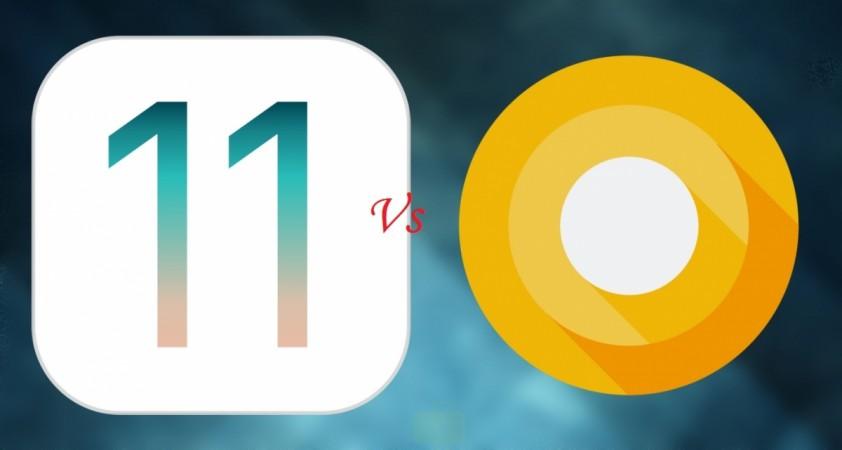
Apple unveiled iOS 11 developer preview at its recent Worldwide Developers Conference (WWDC) in San Jose, California. In contrast, Google had showcased the second preview version of Android O 8.0 at this year's I/O conference in May.
Apple's iOS 11 goes up against Google's latest mobile OS, Android O 8.0, in the battle of top mobile OS platforms in the market. IBTimes, India explores the best features of the two mobile operating systems to determine the ultimate winner.
Innovation and Creativity
New AI features
Google has really nailed it with the new AI-powered features on Android O 8.0 such as copying a Wi-Fi password when you focus the camera on it.
Apple is yet to integrate its Augmented Reality (AR) technology into the operating system in order to offer mainstream AI features at the system level.
Picture-in-Picture mode
Android O now enables users to shrink a video into a floating thumbnail or employ the picture-in-picture mode for improved multitasking capabilities.
Furthermore, Android 8.0 users can play music from the phone to multiple speakers with the sole constraint that they should be Chromecast compatible.
Peer-to-peer payment system
Apple's iOS 11 wins the battle with its iMessaging app powered by tonnes of refinements including the latest Apple Pay feature.
On the other hand, Google's Android O comes with the basic texting app without any integrated peer-to-peer payment systems.
Voice Assistant
Google Assistant goes a step ahead of Apple's Siri by offering more than just a voice assistant. A new mode called Google Lens allows the assistant to identify objects, besides enabling the user to type out queries and not just using voice commands like with Siri.
Android O seems much more streamlined, thanks to its innovative enhancements. On the contrary, Siri looks outdated with no updates popping out for the digital assistant from the WWDC.
Proactive operating system
Google's Android O is more proactive and up-to-date in terms of constant updates from the developers as it uses an open-source code, unlike Apple's iOS 11 which is closed. Consequently, Apple's operating system is less proactive as it creates the same software for all its portable devices while Google creates the software which can run on hundreds of Android devices.
With constant improvements and optimisations up its sleeve, Android O could run much faster as well as boot quicker than Apple's iOS 11.
Security issues and inherent bugs
Apple holds the edge when it comes to security as it controls both the hardware and software with a well-ironed operating system. Apple's iOS 11 becomes more secure with the company's closed source-code policy.
Apple's iOS 11 will obviously feature less number of inherent bugs, given its tighter system integration with apps. Also, iOS 11's superior security mechanism paves the way for lesser bugs than Android O.
Performance and battery life
When it comes to performance and battery life, Android O definitely surges ahead given its faster boot up times, quicker app load times, and various software refinements aimed at improving the device's overall battery life.
On the other hand, you will not notice much performance gain when you migrate from iOS 10 to iOS 11 as Apple often ends up making cosmetic user-interface (UI) improvements between subsequent software upgrades, with more emphasis on design, security and features.
Augmented Reality and Virtual Reality
Android seems miles ahead of iOS in terms of advancements made in the AR and VR field. Google Daydream feature tilts the VR battle in favour of Android while the upcoming iPhone camera's AR capabilities will give a stiff competition to Google Tango.
Google Tango is not fully developed and this could allow Apple to launch its ARKit developer platform in its quest for capturing the AR market. There is no clear winner when it comes to the AR field.

















